Giving sustainability a bad name, the mediagenic 100 mile diet
June 30, 2005
Far be it from me to take the fun out of eating locally and sesasonally, and far be it from me to stop others from trying, but some folks are just giving sustainability a bad name.
I’m wondering about the media-genicity of the stupid experiment with the high Supersize Me-factor. Trading and industrialised food are as old as the hills.
A list of what is missing from this couple’s 100 mile experiment:
1. Common sense.
2. A good knowledge of gardening and sprouting. It is outright stupid to do this experiment w/o a garden. 80m2 per person for year round eating in agricultural zones 7-9 is plenty of land. And I sprout more seeds and grains than I can eat in Amsterdam apartment, which is located in the Polar Circle.
3. A lack of community with basic skills that includes farmers. Two people do not a community make. Easy food prep is difficult when you have so few people to prepare for the winter, hence the ridiculous effort to which these folks are subjecting themselves.
4. An unwillingness to eat a different diet. First Nation peoples were not vegans. WTF - strawberry jam? Eat something else for gawdssakes! If you simply MUST eat a bloody strawberry or a tomato in the dead of winter, you’ll need to dehydrate soft fruits in July.
5. A knowledge of traditional lines of trade. Ever heard of salt, fish and sugar? Trading salt is almost as old as the hills - which is why I mistrust this Supersize Me sort of media experiment from the outset. If one really wanted to know what it means to have this diet, they wouldn’t put bread on the North(west) American menu. Or just NOTE that grains/sugar are unavaillable for a year and spend the year experimenting what it’s like to live without. Or try growing some grain yourself. That’d be a laugh. People have been moving food and seeds around the world since forever. Plants are stationary, animals and people move around. Being aware of provenance doesn’t have to take on these proportions.
Here’s a list of some other things we could think about putting on our own dang 100 mile diet:
- detergents
- appliances
- hell, your drinking water may not come from within 100 miles
- try buying some clothes that were made from materials within 100 miles and that were made by people working within 100 miles
- buy a fuqn car that was made within 100 miles
- buy some fuqn petrol that came from within 100 miles
- buy some local birth control pills, some local condoms
- where’d your freezer come from?
- or your dehydrator?
Or, maybe the problem lies in all of that buying…
The 100 mile diet is giving sustainability a bad name. Check out the craziness.
The 100 mile website. Idiots.
debra at 9:12 | | post to del.icio.us
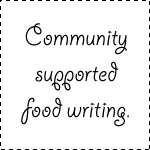
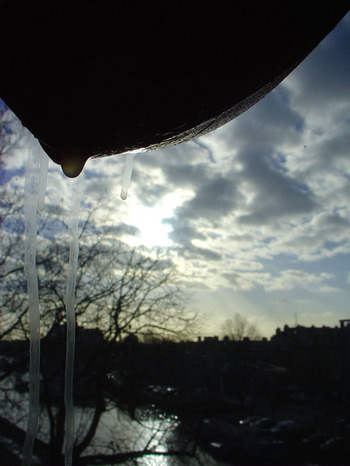
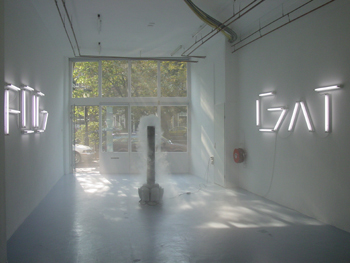
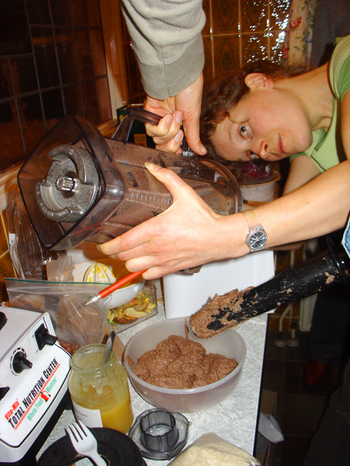

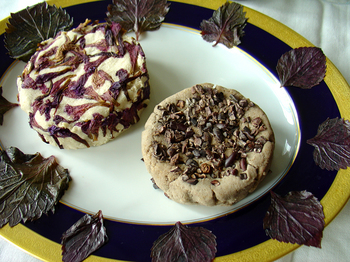
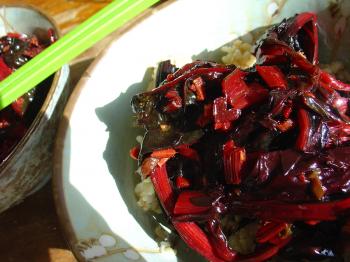
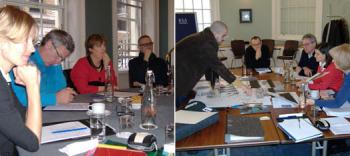
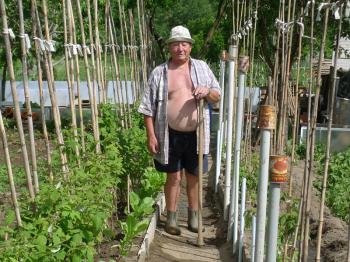










This is the first I’ve heard of the 100 mile “movement”. I followed the link you posted and explored very briefly (5 mins tops) their website and explanation. I wanted to see what choices they are making that aroused your slightly brutal assessment. First of all, they are Canadian so they do owe us an explaination on why they are calling this the 100 mile diet and not the 100 kilometre diet. Maybe because that would be even more constraining.
You said they are missing a knowledge of gardening and sprouting. Do they admit to missing a knowledge of gardening? I see that they have an apartment in Kitsilano. There are long stretches of community gardens along a train line that goes through that part of the city. And it is possible to maintain quite a bountiful garden in Vancouver apartments. Many of the Asian community there do so very successfully, routinely selling their vegetables at the markets.
You also noted that they lack a community with basic skills that includes farmers, and that two people do not a community make. That is probably true, but it seems like one of their main goals is to develop that community. The 100 miles surrounding their home base is full of farms and farmers, hunters and fishers. They live in one of the highest density cities in the world, yet it is still possible to walk to the ocean every day and fish alongside many other people, collect seaweeds, mushrooms etc.
You point out their unwillingness to eat a different diet and allude to veganism. I saw on their site that they had obtained a bit of beef– are you sure they are trying for veganism?
I’m not sure what you were trying to say in reference to the 100 Milers’ lacking knowledge of traditional lines of trade. Obviously there were no silk roads in British Columbia. There are many water trade routes - modern and traditional - in that area of which they are likely very aware. Why can’t they put bread on the North American menu? There are traditional Native breads. Again, not sure what you were trying to say in point number 5.
Your skewering of the other stuff they should put in the 100 mile diet (such as appliances) is funny… but does ask a lot from a couple trying to make choices about food consumption. They’re focusing on food- not appliances. They live in BC so they’re getting their drinking water from within 100 kilometres (sorry– MILES), they have a plenty of opportunities to buy clothing made from materials grown within 100 miles (hemp) and made by people working within 100 miles. And they are certainly getting all their great BC dope from within 100 miles.
So do you really, truly think they are “idiots”? Or do you just hate their media-friendly graphic design and visual delivery?
Your ever faithful reader and admirer,
-Kendra
Comment by Kendra — December 1, 2006 @ 23:54
Well, I tire of responding to people who have clearly invested absolutely no time in investigating our actual actions, and instead respond to whatever they’ve grazed from a media which they presumably do not ordinarily trust. Your comments take the cake in this regard. Oddly enough, I suspect you are an ally.
James MacKinnon (or is it just his media publicist?)
Comment by J.B. MacKinnon — November 5, 2007 @ 6:48
Dear James,
On the assumption that I\’m speaking to the James MacKinnon and not his media publicist, thank you for taking the time to write to me. I am indeed a strong ally when it comes to locative eating, acutely aware of its ramifications without laying claim to ever having done so in such a rigorous way as you have. For this reason my reply might sound more like an argument about project dramaturgy, positioning and writing style than about the subject of eating locally.
It would be unfair to say that my information about your project was media grazing. It would be fair however to criticise my not positing this standpoint slash rant to you directly. If I had done so at the time, it is likely that its format would have been much less rant-like. For this I apologise, I should have given you constructive criticism during the course of your project.
If we dare to take a position in life, if we are FOR something, we are aware that we present it to the general public slash SPECIFIC MEDIA CONTEXT in a positive light. It is undoubtedly difficult to write about missing olive oil and coffee and birth control pills and petrol in an exclusively gushy way. Yet there are a myriad of projects in which the writers have done so, Barbara Kingsolver and her family\’s adventure is exemplary of this.
Anyone who has lived on a farm or who has a garden larger than 50m2 knows that food rains down upon you and dictates your eating habits. My personal experience of this is that it is happy-making, and in no-way a hardship. I consider it healthy when my biggest complaint is that I have no time to think up something interesting to do with the tomatoes because I am too overloaded with garden work, come home too tired to cook beautifully and just start shoving figs in my mouth for dinner. That\’s a more realistic complaint than the surprise realisation of not eating tomatoes at all in January because I\’m spending a winter in the Polar Circle (Amsterdam) where my friends don\’t have allotments and we therefore didn\’t prepare tomato sauces, sun dry tomatoes or make green tomato pickles (my favourite) to last us through the winter.
Without shedding any doubt upon the sincerity of your engagement, when I imagine preparing for a yearlong experience of eating exclusively local food as a media project, I just imagine entirely different scenarios. I would have built these into the project. (As a designer that produces work in the public space, I know what it is to create and follow a scenario.) Among my scenarios, developing good relationships with my local growers/food producers and the element of new food discovery would have played a much larger role in my story than it did in yours. Certainly you must have experienced the THRILL of discovering a new food. AT OUR AGE! The serendipity that I experience of discovering new foods simply by eating locally AT MY AGE cannot be associated with hardship.
This is why I\’m saying this is in fact a discussion of writing style and positioning.
Also I would be aware that I am producing a MEDIA project as opposed to a community project (that doesn\’t need as much media to get its point across). By this I mean to say that the various media come with their own contexts and it isn\’t that difficult to imagine what those contexts are. Hack journalists (as opposed to sincere bloggers ; ) oftentimes when writing on the subject of sustainability through locative eating, create tension in their narrative by writing about hardship, of giving up stuff, of giving up \’lifestyle\’. James, if you are an ally of your own project, isn\’t this approach counter productive to the locative eating cause? My criticisms suggest the necessity of being mindful to not feed into this popular media notion. Why not focus primarily on the life-enhancing luxury inherent in all that locative eating brings; foraging for berries or mushrooms or chestnuts with friends, creating dinners of new foods, learning how to pickle and jam with my neighbours.
You took part in a rigorous project of eating locally for one year, an endeavour that requires deep engagement and devotion, and which touched every aspect of your life. For this I applaud you. But if you are devoted to the enormity of what you\’ve done, do not allow your project to be appropriated by green washing life-style journalists that think you can Prius your way to a sustainable future. Be your own dang ally.
And now comes the part where you say, \’Debra, put your money where your mouth is.\’
Most sincerely yours,
Debra Solomon
Comment by debra — November 5, 2007 @ 12:51